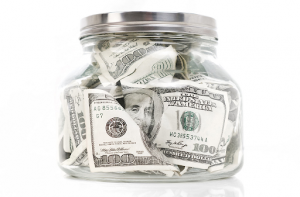By Duane Cruz, Staff Writer
The national inflation rate has recently reached a peak increase of 7.5 percent, which is the highest it has been since 1982- after two consecutive recessions.
This increased inflation rate applies to most everything one could think of in terms of goods. Looking at different consumer price indexes, we find that the cost of food is up 7 percent from last year, with fuel oil rising a staggering 9.5 percent in just the month of January.
“As a commuter, I have noticed that gas prices have been getting more expensive,” sophomore computer science major Nathaniel Pyram said. ”It’s pretty crazy because now I have to put more hours in at work to pay for the higher priced gas, when driving to work adds to that expense.”
The increased cost of living has had a major effect on the U.S.’s battle on the wage deficit, having nearly nullified wage increases in the past year as well. With real hourly work wages increasing .7 percent in the last month and inflation also rising .6% in the same time period, we only see a .1 percent wage increase total.
Along with the shellshock of a still advancing pandemic, where the government has both lowered interest rates and provided stimulus checks to combat the covid job crisis, you have a perfect inflation storm.
To help mend the growing inflation, the Federal Reserve plans to increase the federal funds rate moving forward into 2022. In layman’s terms, an increase to the federal funds rate is an increase to the amount of money banks must have at their disposal to lend to the Federal Reserve.
“With another surprise jump in inflation in January, markets continue to be concerned about an aggressive Fed. . .market anxiety about potential Fed overtightening won’t go away until there are clear signs inflation is coming under control,” LPL Financial asset allocation strategist Barry Gilbert told CNBC.
This potential tightening refers to the likelihood of the Federal Reserve to force a sharp hike in interest rates over the next few months rather than a gradual one. For banks, this would look like 0.5 percent Fed. interest rate increase in affected markets.
Such a sharp interest rate increase from the record low of zero could stand to choke the economy, further debilitating the country and even make the inflation rate worse. On the other hand, if the interest rate does not increase quickly enough, the inflation rate, again, could get worse.
President of New York’s federal bank, John Williams, made the statement “personally, I don’t see any compelling argument to take a big step at the beginning,”at a market event held at the City College of New Jersey.
The last time America has seen this high an increase in inflation was in 1982, after the twin recessions of the 1970s collateralized into a worldwide panic. The leading oil industries at the time were dependent on the oil producing counties in the Middle East, such as Saudi Arabia and Iran. The two recessions, the first lasting from 1974 to 1975 and the second from 1979 to 1982, were caused by these oil producing countries demanding an increase in oil prices.
After coming out of a disaster of equal or even greater proportions, the future Fed. interest rates are not set in stone to be huge just yet. Federal Reserve Bank of New York President John Williams sees a steady increase in federal interest rates as we move into March.
“Honestly what to do now, I really don’t know,” junior psychology and sports management major Peter Plocharezyk said. “The whole Ukraine situation is going to make everything worse. It could get better if the U.S. decides to face its internal problems rather than its [external] ones, which they can’t now.”
Now in the midst of an even more pertinent crisis, the Russian-Ukrainian War, it seems that our inflation rates are going to have to take a backseat as the forign crises has dominated air waves ever since the first missile strikes on Ukraine. Soon after, Biden followed his previous Russian aimed sanctions with more severe ones, putting on hold the accounts of Russian officials close to Putin.
“I doubt inflation is going to go down now because of the sanctions,” Plocharezyk said. “Oil prices and gas prices are going to be going up now because of the sanctions put on Russia.”






Be First to Comment